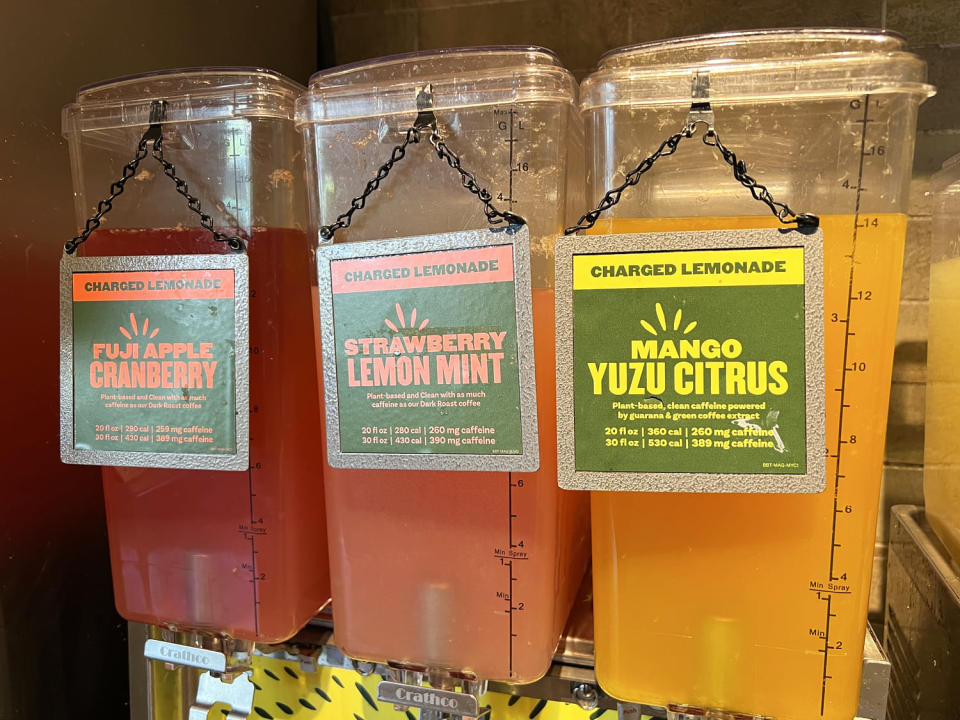Teen’s heart stops after drinking Panera Charged Lemonade: These were his 1st symptoms, lawsuit alleges
On March 9, 2024, Luke Adams, 18, stopped by a Panera Bread and grabbed a chicken sandwich and a large Charged Lemonade, according to a recently filed lawsuit. Later that day, he and some friends went to a movie, and while at the theater, Adams began making “unusual sounds," the lawsuit reads.
Luckily, two nurses and a cardiologist were also attending the movie and they performed CPR and used an automated external defibrillator (AED) on the teen, NBC News reported.
“He was about as close as you can come to being dead,” Dr. Andrew Pogozelski, chief of cardiology at Allegheny Health Network Forbes Hospital in Monroeville, Pennsylvania, who treated Adams, told NBC News. “This was about as unlucky as you can get for this to happen to an 18-year-old, otherwise healthy person — but as lucky as you can get for people in the movie theater to know what they were doing.”
Adams and his family filed a lawsuit in U.S. District Court for Eastern Pennsylvania against Panera related to its Charged Lemonade, which has 237 milligrams of caffeine with ice, according to its website.
Panera ceased selling the beverage two weeks ago after a "recent menu transformation," a spokesperson said earlier this month. At the time, they declined to answer questions about whether previous lawsuits played a role in removing the item from menus. This is at least the fourth lawsuit against the company related to the beverage, according to NBC News.
Panera has denied wrongdoing in legal documents and did not respond to NBC News’ request for comment on the lawsuit.
Adams’ mother, Lisa Feyes, said she felt relief when she heard the drink would no longer be sold.
“They were tears of joy because no other parent will ever have to go through this because of Panera’s lemonade again,” she told NBC News.
Seizures, cardiac arrest
After arriving at the hospital, Adams experienced two seizures and cardiac arrest, the lawsuit says. It also notes that the teen was unaware “that the Charged Lemonade was a super energy drink.”
Medical information submitted with the suit indicated that Adams’ seizure had “unclear etiology possibly related to cardiac arrest secondary to caffeine intake from Panera Charged lemonade.” The lawsuit also says that Adams had no family history of sudden cardiac death and that “heavy caffeine intake identified is only potential trigger” for his cardiac arrest.

After doctors stabilized Adams in the emergency room, they moved him to the intensive care unit, where he was placed on a ventilator as he was struggling with acute respiratory failure, the lawsuit says. A few days later he woke and could be taken off the ventilator. Later, an MRI of Adams’ heart “showed no structural abnormalities,” and genetic testing did not uncover any other conditions that could have contributed to the cardiac arrest.
Doctors gave Adams an implantable cardioverter defibrillator, which rests under the skin and jolts the heart if an abnormal rhythm starts, the American Heart Association says. Adams lives with post traumatic stress disorder and general anxiety disorder since his health scare, the lawsuit says. His mom also grapples with fear and worry.
“Every night when I go to bed, the whole thing replays in my mind,” Feyes said. “It’s really hard for me to watch Luke walk out the door.”
Lawsuits against Panera Charged Lemonade
There are three other lawsuits associated with Panera’s Charged Lemonade. Two are relating to the deaths of Sarah Katz and Dennis Brown, and the third is regarding the heart injury of Lauren Skerritt, according to NBC News. Katz had long QT syndrome type 1, a heart condition, and Brown had a chromosomal deficiency disorder. Past NBC News reporting indicated that Skerritt was healthy and had no preexisting conditions.
The Adams’ lawsuit alleges that the Charged Lemonade “is defective in design because it is a dangerous energy drink” and that Panera “failed to properly warn consumers of their dangerous product.”
Elizabeth Crawford, a partner at Kline & Specter PC in a Philadelphia, who represents the plaintiffs in the lawsuits, told NBC News that “this product should have been taken off the shelves before the situation happened."
“It was a traumatic experience for both Luke and his family,” Crawford said. “It was just so unexpected.”
Following the earlier lawsuits, Panera added more detailed disclosures about the Charged Lemonade in all its restaurants, as well as online. It warned customers to only consume the beverage in moderation and discouraged children, caffeine-sensitive people and pregnant and nursing women from consuming the drink.
Charged Lemonade was also moved from the self-serve area to behind the counter, and the bakery-cafe chain updated the caffeine count in the nutrition information to reflect how much is in the drink with ice.
This article was originally published on TODAY.com

